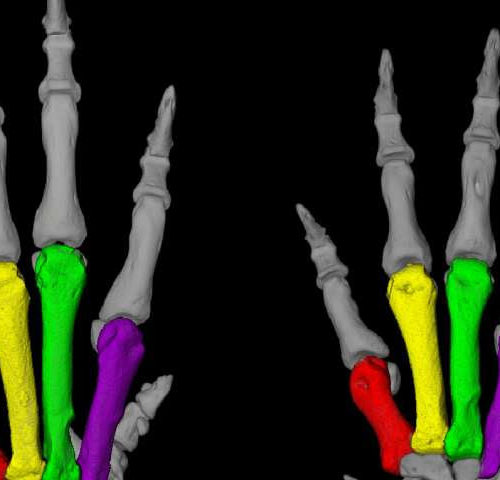Drugs used to treat initial signs of rheumatoid arthritis also improve the early stages of heart disease, according to new research UNIVERSITY OF LEEDS Drugs used to treat initial signs of rheumatoid arthritis also improve the early stages of heart disease, according to new research. Having rheumatoid arthritis (RA) is known to at least double...
Tag: <span>Hypertension</span>
Evidence Mounts for COVID-19 Effects on Thyroid Gland
Editor’s note: Find the latest COVID-19 news and guidance in Medscape’s Coronavirus Resource Center. Rates of thyrotoxicosis are significantly higher among patients who are critically ill with COVID-19 than among patients who are critically ill but who do not not have COVID-19, suggesting an atypical form of thyroiditis related to the novel coronavirus infection, according...
Study finds ibuprofen does not increase risk of death from COVID-19
by University of Aberdeen A new study conducted during the height of UK hospital admissions from COVID-19 has found that the regular use of painkillers including ibuprofen, naproxen and diclofenac did not increase the risk of death from the disease. Published in the Journal of Clinical Medicine, the study is the first to report on...
Artificial intelligence-enhanced ECGs may speed heart failure diagnosis and treatment
Circulation: Arrhythmia and Electrophysiology Journal Report DALLAS, August 4, 2020 — When people seek emergency care for shortness of breath, a routine electrocardiogram (ECG or EKG) enhanced by artificial intelligence (AI) is better than standard blood tests at determining if the cause is heart failure, according to new research published today in Circulation: Arrhythmia and...
Women taking beta blockers for hypertension may have higher risk of heart failure with acute coronary syndrome
DALLAS, July 13, 2020 — Women taking beta blockers for hypertension with no prior history of cardiovascular disease (CVD) have a nearly 5% higher risk for heart failure than men when they present to hospital with acute coronary syndrome, according to new research published today in Hypertension, an American Heart Association journal. Beta blockers are...
How much postmenopause weight gain can be blamed on weight-promoting medications?
New study based on Women’s Health Initiative data documents that overweight postmenopausal women are more likely to be taking antidepressants, beta-blockers, and/or insulin to treat various health problems. THE NORTH AMERICAN MENOPAUSE SOCIETY (NAMS) CLEVELAND, Ohio (July 15, 2020)–Abdominal weight gain, which is common during the postmenopause period, is associated with an array of health...
Common hypertension medications may reduce colorectal cancer risk
Hypertension Journal Report AMERICAN HEART ASSOCIATION DALLAS, July 6, 2020 — Medications commonly prescribed to treat high blood pressure may also reduce patients’ colorectal cancer risk, according to new research published today in Hypertension, an American Heart Association journal. Angiotensin converting enzyme inhibitor (ACE-i) or angiotensin II receptor blocker (ARB) medications are prescribed for conditions...
Overactive enzyme causes hereditary hypertension
by Max Delbrück Center for Molecular Medicine A Turkish family from a village near the Black Sea caught the attention of medical researchers in the early 1970s, when a physician discovered that many members of this large family had both unusually short fingers and astronomically high blood pressure, sometimes twice as high as that of...
High blood pressure during and after exercise may be markers for disease later in life
Higher blood pressure during exercise and delayed blood pressure recovery after exercise are associated with a higher risk of hypertension, preclinical and clinical cardiovascular disease and death among middle-aged to older adults. Blood pressure responses to exercise are significant markers of cardiovascular disease and mortality risk in young to middle-aged adults. However, few studies have...
NUI Galway research show blood pressure lowering reduces risk of developing dementia
Research completed in NUI Galway has shown that lowering blood pressure by taking blood pressure medications reduces the risk of developing dementia and cognitive impairment by 7%. The findings are published today in a leading international medical journal, the Journal of the American Medical Association (JAMA). Fourteen randomised controlled trials (96,158 participants) were included in...


